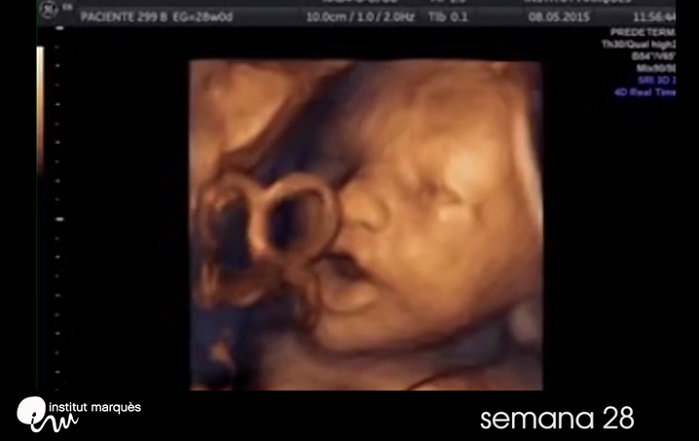In a move that has some abortion advocates puzzled, the Kansas Attorney General used an infamous U.S. Supreme Court case about slavery to defend the state’s ban on brutal dismemberment abortions.
Gov. Sam Brownback signed the Kansas Unborn Child Protection from Dismemberment Abortion Act into law on April 7, 2015, but abortion advocates quickly filed a lawsuit challenging the law. The American Civil Liberties Union, representing the Overland Park Center for Women’s Health abortion clinic in Kansas, managed to convince a lower court to temporarily block the law in June 2015.
Kansas Attorney General Derek Schmidt appealed the ruling, “claiming that it is ‘a fantasy’ that the Kansas state Constitution of 1859 protects a right to abortion (much less one that upholds gruesome dismemberment of living, well-formed unborn children!),” Kathy Ostrowski, the legislative director for Kansans for Life wrote. In April, the Kansas Supreme Court agreed to hear the case.
This week, Schmidt’s office submitted to the Kansas Supreme Court its response to abortion activists’ arguments against the law, according to the Wichita Eagle. In the filing, the state attorneys referred to the Dred Scott case on slavery to argue that the state Constitution does not guarantee a right to abortion, the report states.
While pro-lifers sometimes use the example of the human rights abuses of slavery to argue that all human beings deserve an equal right to life and liberty, that does not appear to have been the Kansas Attorney General’s argument in this case. Rather, the state’s point in citing Dred Scott (a horrible ruling that said blacks were not U.S. citizens, and later was overturned) is to indicate how the state Constitution language should be interpreted.
Keep up with the latest pro-life news and information on Twitter. Follow @LifeNewsHQ
Here’s more from the Wichita Eagle:
The ACLU had argued that the Kansas Constitution’s equal rights provision, which was adopted in 1859, should be interpreted similarly to the 14th Amendment to the U.S. Constitution, which guarantees equal protection under the law and served as the basis for the U.S. Supreme Court’s Roe v. Wade decision that created a right to abortion under U.S. law.
The state disputed that argument in a 14-page filing, contending that the equal rights provision was inspired by the Declaration of Independence and should be interpreted similarly as a statement of ideals rather than as a document of law.
In support of that argument, the state’s attorneys cited seven cases in which the Declaration was found to have no legal effect. Most of those cases were from the past 30 years, but one was from 1857: The infamous Dred Scott decision.
In its argument, the state attorneys cited former Chief Justice Roger Taney’s description of the Declaration of Independence in Dred Scott. Taney wrote that the Declaration’s unalienable rights are merely “general words used in that memorable instrument” that have no legal effect, according to the ABA Journal.
Doug Bonney, a Kansas ACLU lawyer, told the Kansas newspaper that he thought the reference to the infamous case was “unusual.”
Kansas was the first state to pass the gruesome method of abortion by dismemberment, which involves tearing unborn babies limb from limb. The law embodies model legislation from the National Right to Life Committee that would ban “dismemberment abortion,” using forceps, clamps, scissors or similar instruments on a living unborn baby to remove him or her from the womb in pieces. Such instruments are used in dilation and evacuation procedures.
In an email to LifeNews.com in January, Kansans for Life responded to the Kansas Court of Appeals’ decision to uphold the block on the law.
“We are assured that the Attorney General’s office will continue to rigorously defend this law. This outrageous ruling needs to be heard by the state Supreme Court without delay,” the group said. “The law was designed to pass muster with the U.S. Supreme Court and abortion attorneys apparently recognized that fact, thus choosing to file suit in state court, seeking the creation of a state right to abortion.”
The Kansas pro-life group said the judge completely accepted the abortion industry claim that the basis for a federal “right” to an abortion also is found in the Kansas Constitution. The judge misstated federal jurisprudence on abortion, and ignored the key 2007 U.S. Supreme Court Gonzales ruling, which said:
“Casey [the 1992 Supreme Court decision] does not allow a doctor to choose the abortion method he or she might prefer …[and physicians] are not entitled to ignore regulations that direct them to use reasonable alternative procedures,” according to Kansans for Life.
“Even pro-abortion justices of the U. S. Supreme Court have acknowledged that the dismemberment of a living unborn child is as brutal and inhumane a method of abortion as the partial-birth abortion procedure, which is now illegal throughout the country,” Kansans for Life continued. “Kansans for Life is confident this law will eventually be upheld—mirroring the long, but successful partial-birth abortion battle in which the U.S. Supreme Court eventually acknowledged the validity of pro-life legislation.”








